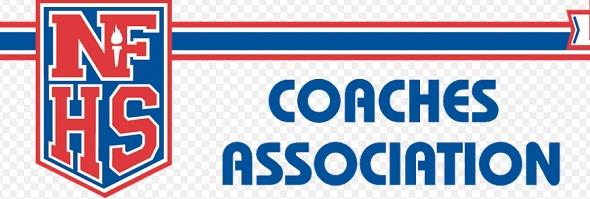
Brother Rice's Venos Honored by NFHS
January 12, 2018
By Geoff Kimmerly
Second Half editor
One of the most successful boys swimming & diving coaches in MHSAA history was honored Thursday by the National Federation of State High School Associations (NFHS) Coaches Association.
Birmingham Brother Rice’s Michael Venos was recognized as the National Coach of the Year in his sport after leading the Warriors to a fourth-straight Lower Peninsula Division 1 championship last winter.
The following brief bio includes Venos’ coaching philosophy, which he was asked to submit after being identified as a candidate for the award.
 Mike Venos is in his 34th year coaching and 21st at Brother Rice, including his 20th as the head of the Warriors program. He has coached 12 individuals MHSAA Finals champions and 15 relay Finals champions, with a record 19 straight Detroit Catholic League team championships. He has been named Class A/Division 1 Swim Coach of the Year by the Michigan Interscholastic Swim Coaches Association four times. Venos also led the Farmington Hills Mercy girls swimming & diving team to the LPD1 championship in the fall.
Mike Venos is in his 34th year coaching and 21st at Brother Rice, including his 20th as the head of the Warriors program. He has coached 12 individuals MHSAA Finals champions and 15 relay Finals champions, with a record 19 straight Detroit Catholic League team championships. He has been named Class A/Division 1 Swim Coach of the Year by the Michigan Interscholastic Swim Coaches Association four times. Venos also led the Farmington Hills Mercy girls swimming & diving team to the LPD1 championship in the fall.
“Very simply stated, it's never about winning. It's about being the best. I am fortunate enough to be able to coach young men and women who just happen to swim. My mission in life is for them to be able to take the lessons they learn from our sport and apply it to their lives. I understand that our parents have their children involved in swimming for more reasons than just to swim fast. I believe that no one person is more important than the team and I want my student-athletes to understand that they are part of something larger than themselves. I don't measure our success by wins and losses, but by how our young men and women go out into the world and represent their team by applying what they have gained from our sport in the daily aspects of their lives.”
The NFHS has been recognizing coaches through an awards program since 1982. Winners of NFHS awards must be active coaches during the year for which they receive their award.

Sorting It Out
February 4, 2014
The MHSAA has a good relationship with the high school coaches associations of Michigan in spite of the fact that the MHSAA sometimes befuddles and frustrates some associations’ leaders and members. This occurs, for example, when a coaches association’s board of directors votes unanimously in support of a change in policy or procedure which fails to be adopted by the MHSAA Representative Council. Every so often over the past 25 years, I’ve had to provide reminders of why this occurs – in fact, why it must occur.
First, a coaches association is just that – an association of coaches; and coaches are but one of the many important voices to whom the MHSAA pays regular attention. The MHSAA also must hear the opinions of athletic directors, principals, superintendents, boards of education, contest officials and others. Typically, coaches desire more of everything: contests, classifications, trophies and medals. Just as predictably, most administrators seek reasonable limits on such things and can often be heard to say, “Enough is enough.”
Second, the makeup of many of our state’s high school coaches associations’ boards of directors, and even the associations’ members, do not reflect the MHSAA’s full membership. Understandably, many coaches associations’ board members are disproportionately from large schools in the southern or even southeastern part of Michigan.
And third, by their nature, coaches associations advance proposals for a single sport, which could impact other sports positively or negatively. There is no question that if one sport “gets” something, like another tournament classification or division, other sports will seek the same consideration which may or may not be practical for or beneficial to other sports.
When considering a proposal from a coaches association, MHSAA Representative Council members will almost always ask themselves: “Who’s not in the room? Who are we not hearing from? Is there another side of the issue? How does this play out among small schools, or urban schools, or northern schools? How will this affect other sports?”
We look to coaches associations for sport-specific advice; and we urge them to seek input from a constituency that is as large and diverse as possible. We look to other stakeholders to add their advice and counsel to the process; and we depend on the Representative Council to sort it out and seek the proper balance.

